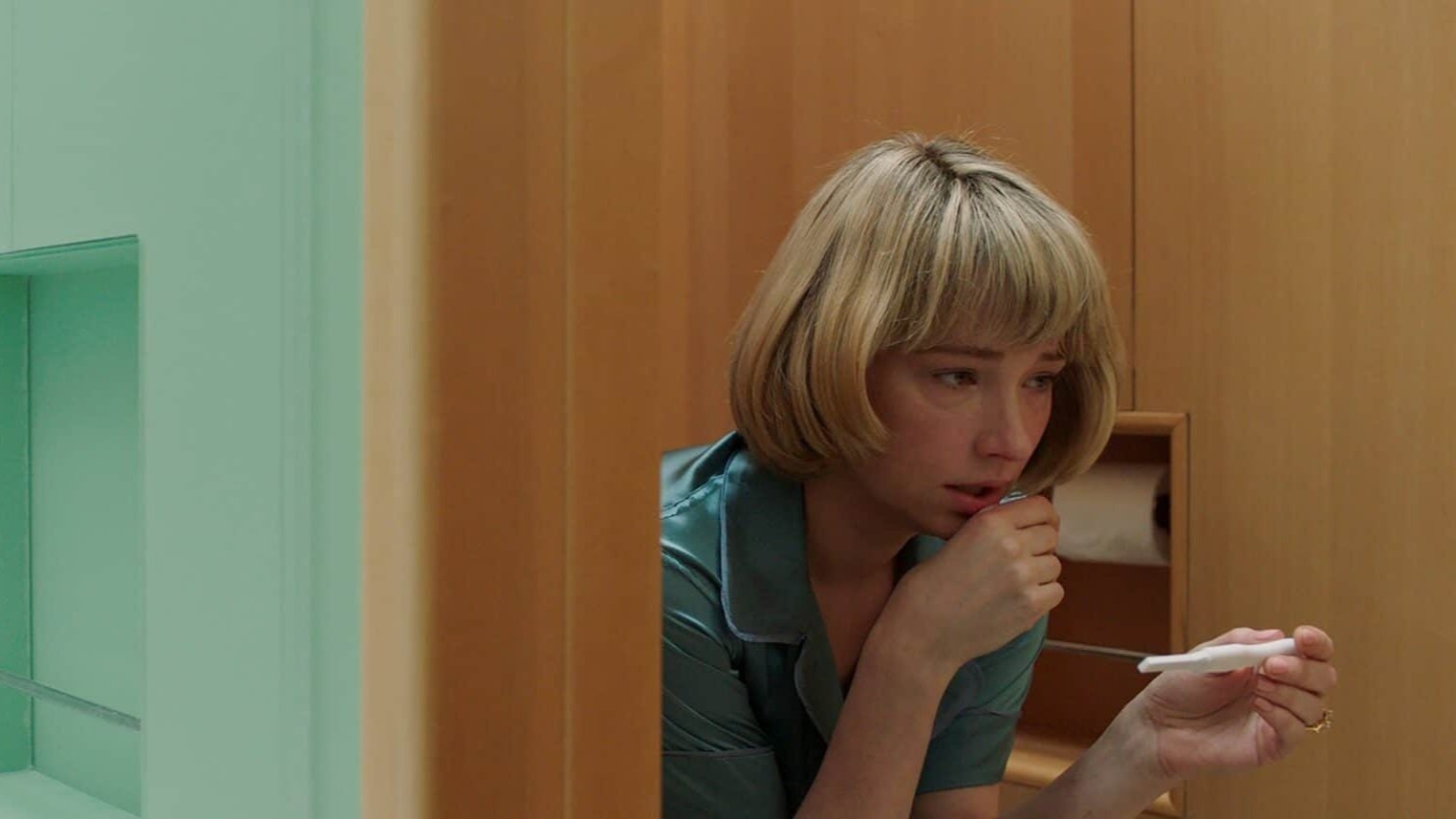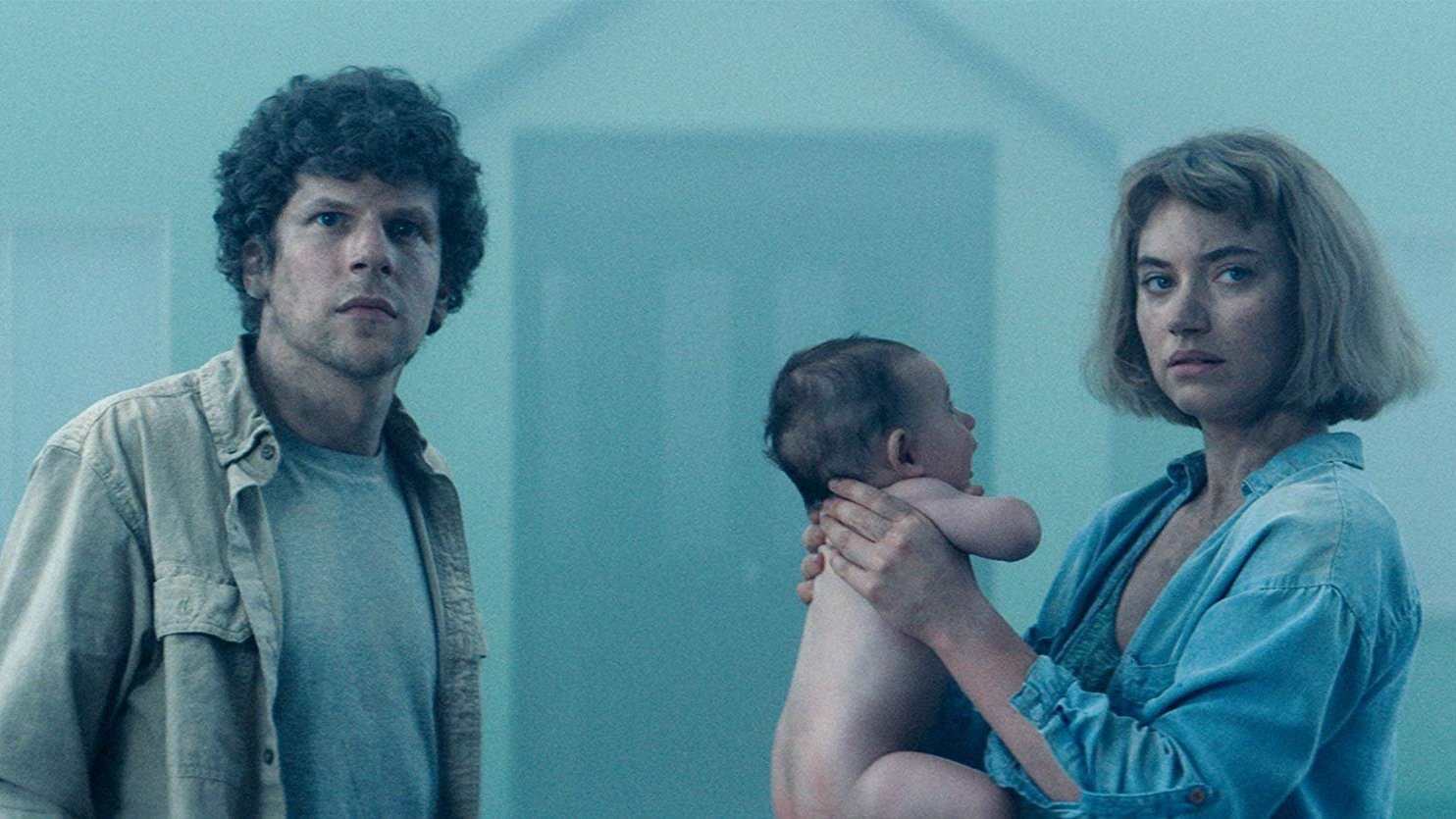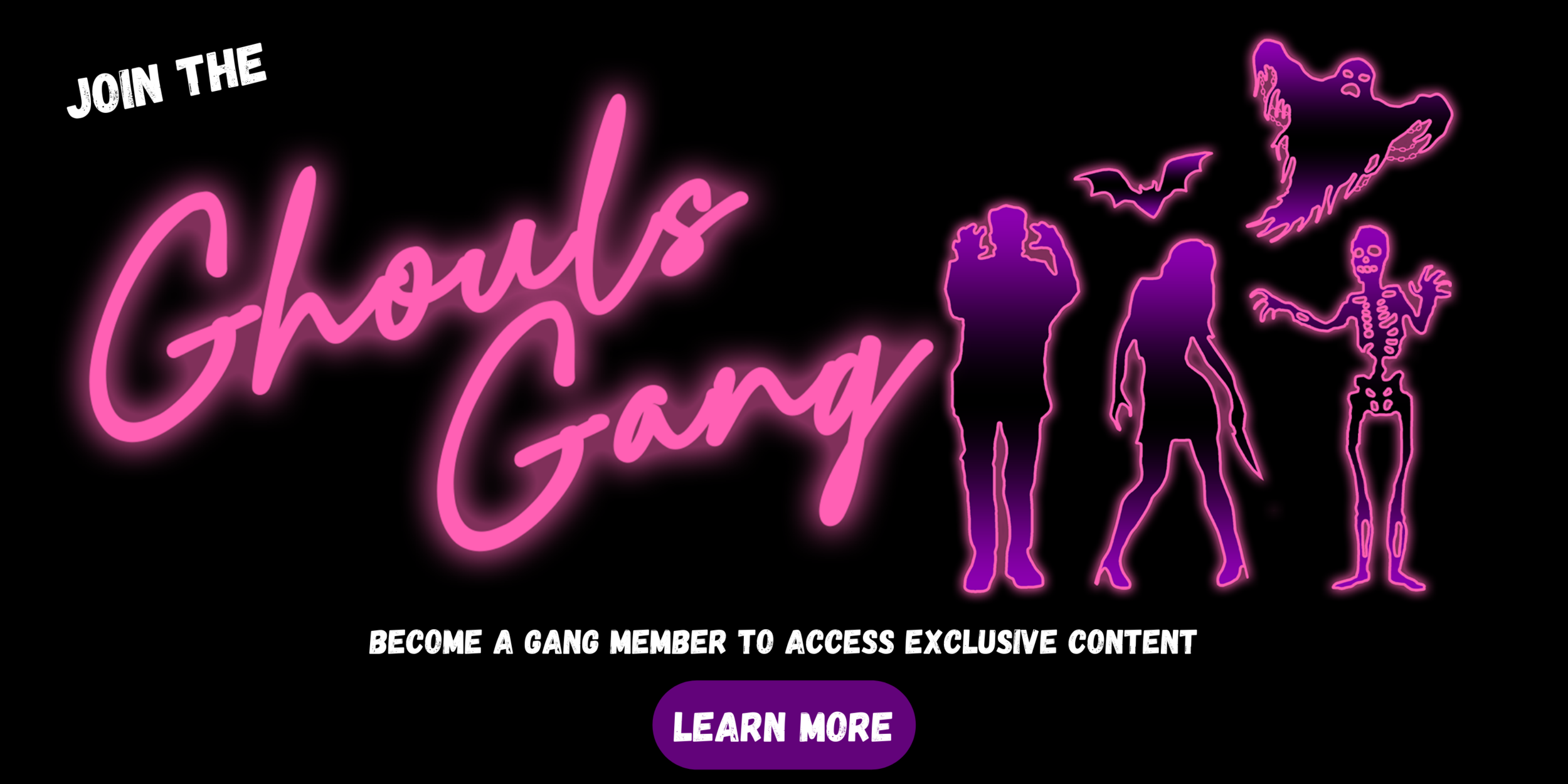[Editorial] The Duality of Desperation and Rejection in Motherhood
In both pop culture and modern-day society there are numerous examples of females who are portrayed as being desperate to become a mother or a wife. Idealisation of motherhood and family life can be seen in a variety of ways wherever you look, be it within your local community, the shows on TV, or in the movies you watch.
Alongside this is a rejection of this idealised lifestyle and it has become more common for women to choose not to be parents in the past few decades. Both this desperation to have the idealised life of being a mother and a wife and the rejection of such a life have been the focus of many movies over the years. These modern movies look at the true range of feelings women have towards parenthood and explore the things women will do to become a mother, and what they are willing to do to assume this role. This duality of the feeling of desperation is thought provoking and it is important to consider when thinking about movies which explore the female experience as well as the function of the female gaze.. How do these portrayals of human emotion impact our thoughts on parenthood or indeed women? Here are four movies which I feel explore both sides well and contribute to our understanding of the spectrum of feelings towards motherhood.
Warning, slight spoilers ahead!
LISTEN TO OUR HORROR PODCAST!
![[Ghouls Podcast] Maniac (2012) with Zoë Rose Smith and Iona Smith](https://images.squarespace-cdn.com/content/v1/5fe76a518d20536a3fbd7246/1696356006789-NYTG9N3IXCW9ZTIJPLX2/maniac.jpg)
Greedy Guts (2000)

Inspired by a folk tale of a tree stump which came to life Greedy Guts explores the desperation to have a baby felt by an infertile married couple. The wife Bozena seems to be deeply impacted by the news from the fertility clinic and we see her express her grief towards the fact that she cannot become pregnant. She is shown crying while holding a variety of baby clothes she has collected, possibly bought whilst feeling hopeful of becoming a mother one day. Her husband Karel seems to understand his wife's feelings yet does not display the deep sorrow that she does, he mostly wants them both to move on and focus on life as it is already instead of being sad of what it cannot become. As they try to move on, Bozena packs away the clothing she has been collecting in a suitcase and they spend time at a cabin with a garden their neighbours have let them use. When they arrive, we see that Bozena has brought the suitcase, putting it away in a cupboard in an attempt to step away from her feelings towards the items inside. Karel starts to focus his attention on the garden and when he comes across a tree stump which looks uncannily like a baby, he decides to cut its longer branches down to resemble limbs, and he presents this to his wife. The reaction she has is probably not one he expected but once she sees the stump, she envisions a real baby and starts to dress it in the clothing she has stored away and begins to care for it. He becomes quite alarmed by the way she wants to nurture it and does not seem to have fully understood how desperate his wife is to be a mother. Gradually the stump comes to life and demands to be taken care of and is needed to be seen as a baby by them both, it is Bozena who takes on the mother role to its fullest potential whilst Karel still seems hesitant and fearful of their situation. This shows that for Bozena there was a deep longing to be a mother within her, she felt so desperate to have a baby that for her this lifeless tree stump had the potential to be something to take care of and as it became a sentient being that depended upon her she grew fiercely protective of it, even when there were grisly consequences.
Lamb (2021)

Lamb follows the lives of a couple who are sheep farmers as they become parents under strange circumstances. As they live an isolated life it is much easier for them to peacefully raise their hybrid child without the prying eyes and bemusement of others. That is until the husband's brother spontaneously comes to visit them. Bewildered by the strange situation he has discovered, he tries to act casual about what he is seeing but once he is able to talk to his brother alone, he asks in an outraged manner “what the fuck is happening?” The reply from the husband is simply “happiness”. This shuts down the conversation and shows that he is unwilling to talk about the situation and the unusual appearance of their child or even the creation of such a being as himself and his wife are happy with their new life. The brother accepts this and carries on acting like an uncle towards the child. Over time things happen that seem to distress the mother and show that she knows that the child is not really meant to be with them at all and she takes drastic action to stop being reminded of this. Lamb looks at the psychology behind people's actions when they act simply on their desire to be content and what they are willing to believe in so they may obtain this happy carefree life they seek. It also provides an interesting point of view of adopting someone that needs to be taken care of no matter what their circumstances are, and how people may perceive this as an odd choice for people to make.
Swallow (2019)

Swallow looks at the life of a housewife called Hunter. Hunter is in an abusive relationship and there are a range of examples which depict this accurately: her husband Richie is loving on the surface but does not fully listen to her when she speaks and does not spend much time with her. He believes that he is providing a very comfortable life for Hunter and that he is not asking for much from her. At one point he becomes angry at her and expresses that she does not seem grateful for the life he has provided her with, not understanding that Hunter is very lonely and unhappy with her housewife life. When she becomes pregnant, Richie becomes even more controlling and her feelings towards being a mother are not considered. This combination of feeling isolated and controlled by her husband and his parents leads Hunter to start swallowing a variety of everyday household items. She starts with a marble and progresses to sharper items such as a pin and even more dangerous items like a battery. When she is rushed into hospital because she is in severe pain and the doctors need to remove items from her body, they are not concerned for her wellbeing but instead seem angry that she has done something that could have harmed the baby and irritated by her irrational behaviour. Following this, the husband becomes even more controlling and makes her go to see a therapist. He also employs a live-in nurse who is to watch her every day and search her for items when she goes to private spaces like the toilet. At one point, we see the husband and parents unhappy with the progress made so far by Hunter and they seem to have planned for a stay at a mental facility without her consent, she is meant to simply respond yes and pack her belongings in their opinion. Eventually Hunter gets away from this very abusive situation and is able to take her life back and make her own decisions. In one beautiful moment which shows how free she finally feels, we see her eating soil for her own enjoyment in a hotel room. Showing that her eating and swallowing inedible items wasn’t always so she may harm herself. Swallow is a great movie which delves into the more subtle forms of domestic abuse and shows how becoming a mother can sometimes be more of a form of control and entrapment than family bliss and love..
LISTEN TO OUR HORROR PODCAST!
Vivarium (2019)

Vivarium follows couple Gemma and Tom as their search for a new home turns sour. They come across a new estate agent and decide to have a look. Although they want to act casual and have a browse they end up being taken to a place called Yonder by persistent Martin, the agent who tells them “I know what you’re thinking ugh suburbia, but at Yonder it is different there will be a diverse range of people!” This line shows that Finnegan is using the modern-day rejection of such a lifestyle to highlight the issues within it. Whilst being shown around house number 9, Martin disappears and Gemma and Tom decide to leave in their car. After a few hours of trying to find a way out, the couple fall asleep outside the house only to wake up and find there is a strange box sat waiting for them. When opened, a baby boy is shown with the words “raise the child and be released”. And so, we see the couple's attempts to raise this peculiar baby and survive in this bizarre place they have been trapped in. At times Gemma tries to show compassion towards the boy but whenever he calls her mother, she angrily tells him ‘I am not your mother’. This response seems to come as a result of them being unable to leave to build the life they wanted to make together.. At one-point, Tom's frustrations at the situation lead him to put the screaming boy in the car overnight telling Gemma she needs to stop treating him like their child, that she is not its mother, and it is not a boy but an “it.” She is unable to let the boy be alone, scared and screaming however and she retrieves him from the car, putting him to bed telling him to have a nice dream and that he is safe.
This shows that Gemma is desperate to make the best of the situation though she does resent it. Tom however shows no interest in helping to raise the child and he is focused more on getting himself and Gemma out of the situation, believing that digging a hole as far as he can, will surely lead them to somewhere else. It is key to note that at no point does the boy call Tom father and he never links the two together as father and mother, he only calls Gemma mother in times he deems it appropriate such as when she is saying goodnight to him nicely. It could be that the boy associates this behaviour to a parent but that none of Tom’s behaviours reflect what he understands a parent to be. Perhaps this is done on purpose by Finnegan as a display of the forced behaviours women in caregiver roles have put upon them. If this is the case, it comes across well and adds a great social commentary on the surreal story. Vivarium looks at the ways it is deemed socially acceptable for fathers to be more distant than mothers, and how it is common for humans to feel compassion towards others even if they or a situation around them is not completely okay and safe for us. It subtly gives a perspective on the social norms of parenting as well; it is seen as more of the mother's role to raise and support a child emotionally than it is a father. And as shown in the movie the couple did not end up raising the baby as a supportive family unit together therefore failing to raise the child and be released.

![[Ghouls Podcast] Ghouls Watch: Bucket List of the Dead, Blood Drive, Candy Land & more](https://images.squarespace-cdn.com/content/v1/5fe76a518d20536a3fbd7246/1696261000263-58VQFOVWPE363OFGP7RF/GHOULS+WATCH.jpg)
![[Ghouls Podcast] Tender Is The Flesh with Zoë Rose Smith, Bel Morrigan and Liz Bishop](https://images.squarespace-cdn.com/content/v1/5fe76a518d20536a3fbd7246/1693769261264-MS4TS4Z4QC1N15IXB4FU/Copy+of+%5BJuly%5D+Antiviral%2C+possesoor+and+infinity+pool.jpg)
![[Ghouls Podcast] Antiviral, Possessor & Infinity Pool with Zoë Rose Smith, Amber T and Iona Smith](https://images.squarespace-cdn.com/content/v1/5fe76a518d20536a3fbd7246/1691238787263-XYRKXW2Z7RWI9AY2V2GX/%5BJuly%5D+Antiviral%2C+possesoor+and+infinity+pool+%281%29.jpg)
![[Ghouls Podcast] Ghouls Watch: Body Horror Recommendations](https://images.squarespace-cdn.com/content/v1/5fe76a518d20536a3fbd7246/1691238687847-L9U434I1U4HZ3QMUI3ZP/%5BJuly%5D+Ghouls+Watch+-+Website+%281%29.jpg)
![[Ghouls Podcast] The Last House on the Left (2009) with Zoë Rose Smith and Jerry Sampson](https://images.squarespace-cdn.com/content/v1/5fe76a518d20536a3fbd7246/1687863043713-54DU6B9RC44T2JTAHCBZ/last+house+on+the+left.jpg)
![[Ghouls Podcast] Ghouls Watch: Bones and All, Suitable Flesh, The Human Centipede & more](https://images.squarespace-cdn.com/content/v1/5fe76a518d20536a3fbd7246/1687855203348-7R2KUSNR6TORG2DKR0JF/%5BJune%5D+Ghouls+Watch+-+Website.jpg)
![[Ghouls Podcast] 3 Original vs. Remake Horror Films with Rebecca McCallum & Kim Morrison](https://images.squarespace-cdn.com/content/v1/5fe76a518d20536a3fbd7246/1685286663069-0Q5RTYJRNWJ3XKS8HXLR/%5BJune%5D+Original+vs.+Remake+Horror+Films.png)
![[Ghouls Podcast] Ghouls Watch: The Devil’s Candy, Morgana, Dead Ringers & more](https://images.squarespace-cdn.com/content/v1/5fe76a518d20536a3fbd7246/1685284429090-5XOOBIOI8S4K6LP5U4EM/%5BMay%5D+Ghouls+Watch+-+Website.png)
![[Ghouls Podcast] The Bay (2012) with Ariel Powers-Schaub & Amber T](https://images.squarespace-cdn.com/content/v1/5fe76a518d20536a3fbd7246/1684751617262-6K18IE7AO805SFPV0MFZ/The+Bay+website+image.jpg)
![[Ghouls Podcast] The Ruins (2008) with Ash Millman & Zoë Rose Smith](https://images.squarespace-cdn.com/content/v1/5fe76a518d20536a3fbd7246/1684076097566-BE25ZBBECZ7Q2P7R4JT4/The+Ruins.jpg)
![[Ghouls Podcast] Picnic at Hanging Rock (1975) with Zoë Rose Smith & Rebecca McCallum](https://images.squarespace-cdn.com/content/v1/5fe76a518d20536a3fbd7246/1682536446302-I2Y5IP19GUBXGWY0T85V/picnic+at+hanging+rock.jpg)
![[Ghouls Podcast] Ghouls Watch: Deathproof, Child’s Play, Ghostwatch & more](https://images.squarespace-cdn.com/content/v1/5fe76a518d20536a3fbd7246/1682447065521-DWF4ZNYTSU4NUVL85ZR0/ghouls+watch.png)
![[Ghouls Podcast] 5 Coming-of-Age Horror Film Recommendations](https://images.squarespace-cdn.com/content/v1/5fe76a518d20536a3fbd7246/1681418402835-EMZ93U7CR3BE2AQ1DVH4/S2+EP5.png)
![[Ghouls Podcast] Psychotic Women in Horror with Zoë Rose Smith & Mary Wild](https://images.squarespace-cdn.com/content/v1/5fe76a518d20536a3fbd7246/1678635495097-X9TXM86VQDWCQXCP9E2L/Copy+of+Copy+of+Copy+of+GHOULS+PODCAST+THE+LOVED+ONES.jpg)
![[Ghouls Podcast] Good For Her Horror Film Recommendations](https://images.squarespace-cdn.com/content/v1/5fe76a518d20536a3fbd7246/1678634497037-W441LL37NW0092IYI57D/Copy+of+Copy+of+GHOULS+PODCAST+THE+LOVED+ONES.jpg)
![[Ghouls Podcast] Ghouls Watch: Severance, Run Sweetheart Run, Splice & more](https://images.squarespace-cdn.com/content/v1/5fe76a518d20536a3fbd7246/1677589685406-YZ9GERUDIE9VZ96FOF10/Copy+of+GHOULS+PODCAST+THE+LOVED+ONES+%281%29.jpg)
![[Ghouls Podcast] Nekromantik with Zoë Rose Smith & Rebecca McCallum](https://images.squarespace-cdn.com/content/v1/5fe76a518d20536a3fbd7246/1677422649033-Z4HHPKPLUPIDO38MQELK/feb+member+podcast.jpg)
![[Ghouls Podcast] The Loved Ones (2009) with Liz Bishop](https://images.squarespace-cdn.com/content/v1/5fe76a518d20536a3fbd7246/1676369735666-56HEK7SVX9L2OTMT3H3E/GHOULS+PODCAST+THE+LOVED+ONES.jpg)
![[Ghouls Podcast] Terrifier (2016) & Terrifier 2 (2022) with Janine Pipe](https://images.squarespace-cdn.com/content/v1/5fe76a518d20536a3fbd7246/1674478017541-0DHH2T9H3MVCAMRBW1O1/_PODCAST+NO+IMAGE+2023+EP+4+%282%29.jpg)
![[Ghouls Podcast] Final Destination 5 & Wrap-up with Ariel Powers-Schaub & Iona Smith](https://images.squarespace-cdn.com/content/v1/5fe76a518d20536a3fbd7246/1672841326335-WER2JXX7WP6PO8JM9WB2/PODCAST+BONUS+2023+%284%29.jpg)
![[Ghouls Podcast] Final Destination 3 & 4 with Ariel Powers-Schaub & Iona Smith](https://images.squarespace-cdn.com/content/v1/5fe76a518d20536a3fbd7246/1672841151148-U152EBCTCOP4MP9VNE70/PODCAST+BONUS+2023+%283%29.jpg)
![[Ghouls Podcast] Krampus (2015) with Megan Kenny & Rebecca McCallum](https://images.squarespace-cdn.com/content/v1/5fe76a518d20536a3fbd7246/1672839790368-VYX6LIWC5NVVO8B4CINW/_PODCAST+NO+IMAGE+2023+EP+17.jpg)
![[Ghouls Podcast] Soho Horror Film Review with Hannah Ogilvie & Caitlyn Downs](https://images.squarespace-cdn.com/content/v1/5fe76a518d20536a3fbd7246/1672840392291-XQGQ94ZN9PTC4PK9DTN1/_PODCAST+NO+IMAGE+2023+EP+16.jpg)
![[Ghouls Podcast] Final Destination 1 & 2 with Ariel Powers-Schaub & Iona Smith](https://images.squarespace-cdn.com/content/v1/5fe76a518d20536a3fbd7246/1672841181605-5JOOW88EDHGQUXSRHVEF/PODCAST+BONUS+2023+%282%29.jpg)
![[Ghouls Podcast] The Borderlands (2013) with Jen Handorf](https://images.squarespace-cdn.com/content/v1/5fe76a518d20536a3fbd7246/1672839985316-KPLOVA9NGQDAS8Z6EIM9/_PODCAST+NO+IMAGE+2023+EP+15.jpg)
![[Ghouls Podcast] Soho Horror Film Preview with Hannah Ogilvie & Caitlyn Downs](https://images.squarespace-cdn.com/content/v1/5fe76a518d20536a3fbd7246/1672840411619-IP54V5099H6QU9FG4HJP/_PODCAST+NO+IMAGE+2023+EP+14.jpg)
![[Ghouls Podcast] Halloween Special: 5 Horror Films to Watch This Halloween with Joshua Tonks and Liz Bishop](https://images.squarespace-cdn.com/content/v1/5fe76a518d20536a3fbd7246/1672840351086-2AWFIS211HR6GUY0IB7I/_PODCAST+NO+IMAGE+2023+EP+13.jpg)













![[Ghouls Podcast] Horror Literature with Nina Book Slayer & Alex Bookubus](https://images.squarespace-cdn.com/content/v1/5fe76a518d20536a3fbd7246/1672840273346-ASHBRDHOKRHMGRM9B5TF/_PODCAST+NO+IMAGE+2023+EP+12.jpg)
![[Ghouls Podcast] Alien with Tim Coleman and Rebecca McCallum](https://images.squarespace-cdn.com/content/v1/5fe76a518d20536a3fbd7246/1672839878802-LR40C39YGO3Q69UCCM62/_PODCAST+NO+IMAGE+2023+EP+11.jpg)
![[Editorial] Oscar Nominations 2026: Where to stream all the horror picks](https://images.squarespace-cdn.com/content/v1/5fe76a518d20536a3fbd7246/1769113319180-4INRRNMZK4DZLHRSUXX5/rev-1-GRC-TT-0026r_High_Res_JPEG-1024x372.jpeg)
![[Editorial] Soho Horror Film Festival: Interview with Aimee Kuge on Cannibal Mukbang](https://images.squarespace-cdn.com/content/v1/5fe76a518d20536a3fbd7246/1701808004722-9M8SZ2UXY52QBQBR4NTI/img20230818_15150780.JPG)
![[Editorial] 10 Films & Events to Catch at Soho Horror Film Fest 2023](https://images.squarespace-cdn.com/content/v1/5fe76a518d20536a3fbd7246/1700819417135-299R7L4P0B676AD3RO1X/Screenshot+2023-11-24+at+09.41.52.png)
![[Editorial] 9 Horror Nintendo Switch Games To Play](https://images.squarespace-cdn.com/content/v1/5fe76a518d20536a3fbd7246/1697214470057-3XZXX8N4LYIMDFWS6Z3P/Screenshot+2023-10-13+at+17.20.13.png)
![[Mother of Fears] Mothering in Silence in A Quiet Place (2018)](https://images.squarespace-cdn.com/content/v1/5fe76a518d20536a3fbd7246/1696445921315-HZJ2DZYQIH6VVWXBO2YL/Screenshot+2023-10-04+at+19.52.29.png)
![[Event Review] Highlights from Mayhem Film Festival 2023](https://images.squarespace-cdn.com/content/v1/5fe76a518d20536a3fbd7246/1697624582491-MPT2VB9RRGU6OG7L6UKL/Mayhem+2023.jpg)
